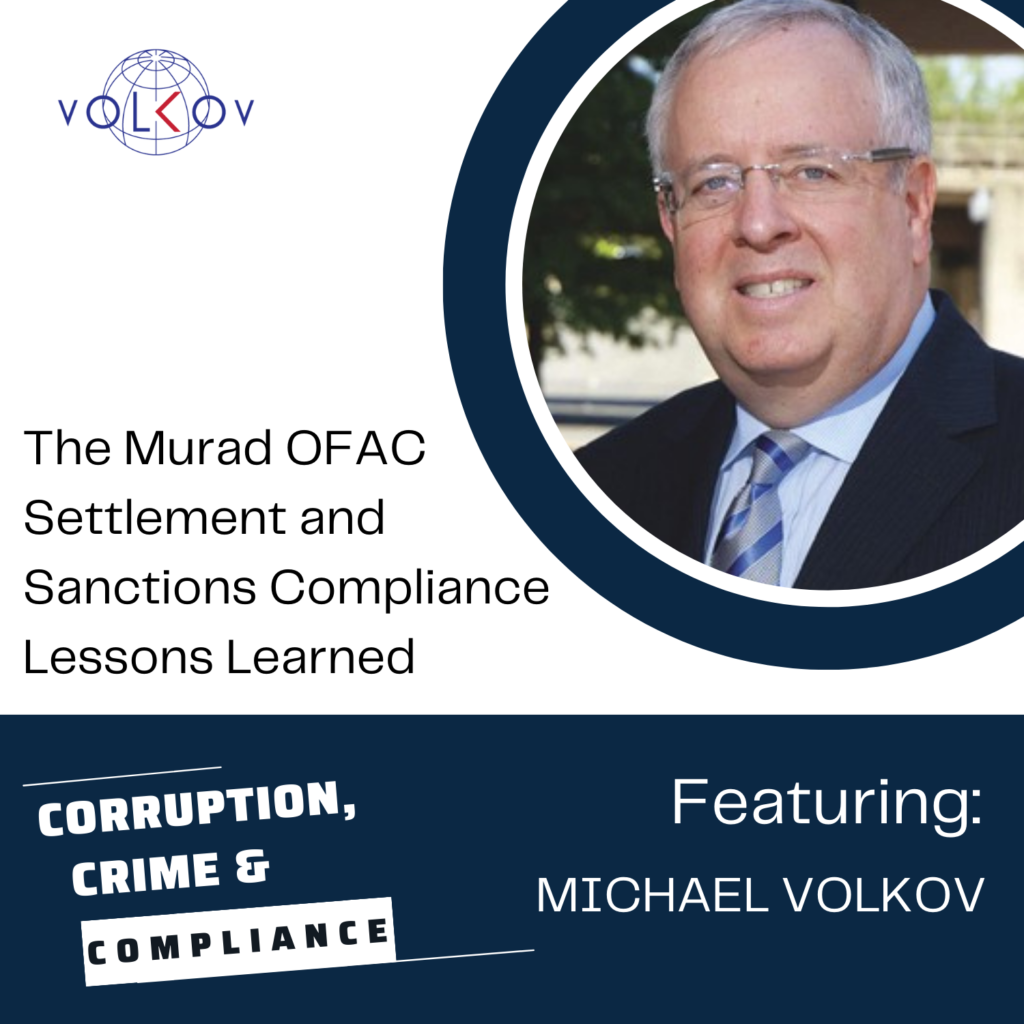
“This [Murad OFAC] enforcement action reflects the fact that OFAC, in recognition of the increasing seriousness of sanctions enforcement, is taking more time to provide guidance through some of their enforcement actions,” Michael Volkov tells listeners. In this episode of Corruption, Crime and Compliance, Michael unpacks the recent enforcement action by OFAC against California-based cosmetics company, Murad. He offers detailed insight into the case, going beyond the headlines and examining the underlying issues that led to the violations, and drawing out key compliance lessons.
You’ll hear Michael talk about:
- The Murad enforcement action is significant because it highlights OFAC’s increasing focus on sanctions enforcement and the need for global sanctions compliance organizations to have strong local oversight.
- Over an eight-year period, Murad illegally exported goods and services to Iran in 62 transactions worth approximately $11 million. The company and a former senior executive were penalized, paying $3.3 million and $175,000 respectively.
- OFAC acknowledged Murad’s voluntary disclosure of the conduct but still categorized the violations as egregious.
- The conspiracy involved an exclusive agreement to sell Murad’s products in the Middle East, including Iran, and continued even after Murad’s acquisition by Unilever.
- The key compliance deficiencies cited by OFAC: These include absence of a specific sanctions compliance program, participation of high-level executives in illegal conduct, and lack of understanding of OFAC sanctions by staff based in the United Kingdom.
- OFAC emphasizes the need for senior management to commit to a culture of compliance and advises against placing a U.S. entity under the compliance structure of a non-U.S. entity that may lack familiarity with U.S. sanctions.
- Unilever’s failure to uncover Murad’s ongoing contracts with Iran demonstrates the need for robust due diligence and integration processes during acquisitions.
KEY QUOTES:
“OFAC specifically cited that, ‘In some circumstances, placement of a US entity under the compliance structure of a non-US entity that may lack familiarity with US sanctions could prevent prompt identification of and response to potentially prohibited conduct’. In other words, you have to have local boots on the ground, you have to have sanctions expertise in your US operations even though you’re owned by a foreign global company.” – Michael Volkov
“It’s important to have people dedicated to the OFAC sanctions compliance process and to make sure that expertise is available to the business within the United States.” – Michael Volkov
“To this end, OFAC stated that senior executives with managerial responsibilities should take particular care to ensure awareness of applicable prohibitions and refrain themselves from engaging in sanctions violations. ” – Michael Volkov
Resources:


